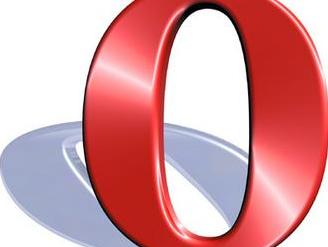Opera seeks dominance in world of widgets
Software company sitting pretty in connected devices

Opera's future could well lie in the world of widgets, according to Director of Products Jean-Christophe Vuillot, with the company's already extensive presence giving them access to a huge range of connected devices.
Although Opera's share is significantly smaller than the likes of Microsoft's Internet Explorer and Mozilla's FireFox in the browser market, the software company is one of the dominant forces in shaping the internet experiences on a whole range of connected devices such as TVs, set-top boxes, Archos devices and, of course, the Nintendo Wii.
Vuillot told TechRadar that, although Opera offers a full browsing experience through its software development kit for manufacturers, it is in the world of the widget that the company is perfectly aligned to become a key player.
Central role
"In the widget world, we can have a very central role," said Vuillot, "because we have an offering on the device side, we have a widget engine, but we also have a service on the server side as well.
"We can host the widget, we can provide the upload mechanism for people, we can qualify the widgets for specific devices, whether it's a TV, an Archos device or a set-top box. We can distribute the widget and we can help create the widget.
"We would like to at some stage have an active dialogue with the content providers, showing the companies the technology that could give them some ideas."
Get daily insight, inspiration and deals in your inbox
Sign up for breaking news, reviews, opinion, top tech deals, and more.
Cross-compatible
Vuillot continues: "The widget is also cross-compatible. It can run on any Opera powered set-top box or mobile device or console," he added
"Okay, it's a marketing tagline but you can develop once and you can deploy everywhere. That is the objective and it is quite possible with Opera technology."
Opera is keen to see some kind of unified standard for IPTV televisions, with Vuillot pointing to the Project Canvas concept at the BBC and the sterling work of the Open IPTV Forum.
The Opera man insists, however, that specific widgets do provide an answer to many of the inherent problems with end-user experience, such as using the remote control as an input device.
Why go for widgets?
"On the connected TV side it could be that there is an alignment an agreement but one way to go is to go for the widgets route," states Vuillot.
"They give access to the internet but not the full internet because of the end user experience and the challenges we have talked about. But if you have a good widget offering, if you can offer a nice user experience and nice widgets on your TV screen then the relevance of the service is good.
"It's an easy way to access specific information that is relevant to you as a user when you are in living room watching TV."
Patrick Goss is the ex-Editor in Chief of TechRadar. Patrick was a passionate and experienced journalist, and he has been lucky enough to work on some of the finest online properties on the planet, building audiences everywhere and establishing himself at the forefront of digital content. After a long stint as the boss at TechRadar, Patrick has now moved on to a role with Apple, where he is the Managing Editor for the App Store in the UK.
